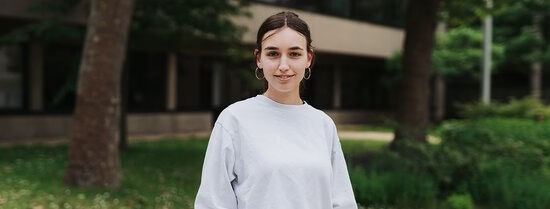In the first year, you will have two hours of lectures and actively participate in tutorials for nine hours each week. You will also need to reserve 33 hours each week for reading and analysing texts, writing papers, and preparing presentations.
The first year comprises eight courses scheduled consecutively, so you only need to study for a single course at any one time. We have chosen this method to ease the transition from secondary to university education. In the second year you will take two courses in each eight-week block. Each course consists of a weekly lecture and a three-hour tutorial group session.
During your final year, you will do a research seminar, in addition to your courses, where you will learn how to conduct a small-scale historical research project yourself. This is the starting point of your bachelor thesis.
Mentor
The mentor programme is designed to guide our first year Bachelor students to make a proper start under the guidance of an expert. Second- or third-year mentors guide new students so that they can make a smooth start at IB History. They will support you in studying efficiently and they can advise you about finding a balance between study, student life and eventually working life. The mentor programme therefore constitutes an invaluable addition to your studies.
Group size
Each Monday in the first year you will attend a lecture together with all your fellow first-year students. You will then be able to devote the rest of the week to the material during three tutorial group sessions. Tutorial groups are groups of around 20-25 students working actively with the material. During the final block of the first year, we will supervise you in a small group of ten students as you write your first longer paper of 4,000 words.
We also combine lectures and smaller tutorials in the second year so that you have four hours of lectures and approximately six hours of tutorials each week. We limit the research seminar in the final year to twelve students who we will be able to prepare optimally for the writing of their bachelor's thesis.
Teaching language
In this international bachelor’s programme, all lectures are given in English. The compulsory literature is also in English. Similarly, English is the language of communication during the seminars. You will also be required to write your papers and sit examinations in English.
What are EC?
ECTS stands for European Credit Transfer System. With each course you can earn a certain number of credits. One EC usually means 28 hours of studying per week. A course of 7.5 EC hence means to you are expected to spend 210 hours per term on the course.
